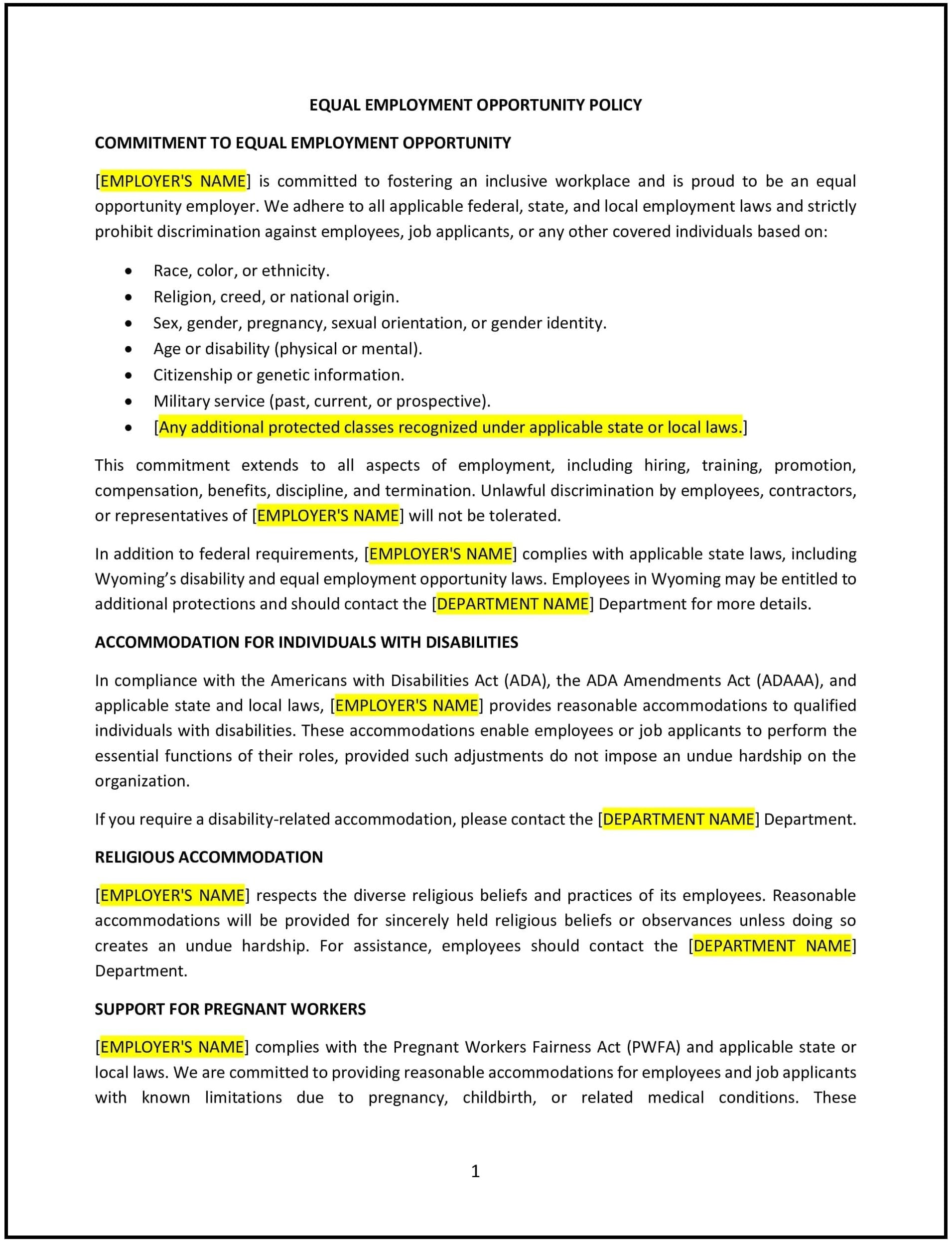Equal employment opportunity policy (Wyoming): Free template
Got contracts to review? While you're here for policies, let Cobrief make contract review effortless—start your free review now.

Customize this template for free
Equal employment opportunity policy (Wyoming)
In Wyoming, an equal employment opportunity (EEO) policy helps businesses create a workplace that promotes fairness and prevents discrimination. This policy demonstrates the organization’s commitment to fostering an inclusive environment and supports compliance with state and federal anti-discrimination laws.
This policy outlines the company’s principles regarding equal employment opportunities, prohibited practices, and procedures for addressing discrimination or harassment claims.
How to use this equal employment opportunity policy (Wyoming)
- Define EEO principles: Clearly state the organization’s commitment to equal employment opportunities regardless of race, color, religion, sex, national origin, age, disability, genetic information, or other protected categories.
- Prohibit discriminatory practices: Detail unacceptable behaviors, including discrimination, harassment, and retaliation, and emphasize the company’s zero-tolerance approach.
- Establish reporting procedures: Provide clear steps for employees to report discrimination or harassment, including who to contact and how complaints will be handled.
- Improve compliance: Align the policy with Wyoming’s anti-discrimination laws and federal regulations, such as Title VII of the Civil Rights Act, the Americans with Disabilities Act (ADA), and the Age Discrimination in Employment Act (ADEA).
- Train employees and managers: Include provisions for regular training on EEO principles and best practices to ensure everyone understands their rights and responsibilities.
Benefits of using an equal employment opportunity policy (Wyoming)
An EEO policy provides several advantages for Wyoming businesses:
- Promotes inclusivity: Fosters a diverse and equitable workplace where employees feel valued and respected.
- Supports compliance: Helps businesses align with state and federal anti-discrimination laws, reducing the risk of legal disputes.
- Improves employee morale: Creates a positive work environment by addressing and preventing discrimination and harassment.
- Enhances reputation: Demonstrates the company’s commitment to fairness and equality, making it more attractive to employees and customers.
- Adapts to local needs: Reflects Wyoming’s unique workforce demographics and community values.
Tips for using an equal employment opportunity policy (Wyoming)
- Communicate effectively: Share the policy with all employees during onboarding and ensure it is readily accessible in the workplace.
- Encourage reporting: Foster a culture where employees feel comfortable reporting concerns without fear of retaliation.
- Monitor compliance: Regularly review hiring, promotion, and disciplinary practices to ensure adherence to the policy.
- Update as needed: Revise the policy periodically to reflect changes in laws, organizational priorities, or societal standards.
- Leverage resources: Work with legal or HR professionals to ensure the policy meets all legal requirements and industry best practices.